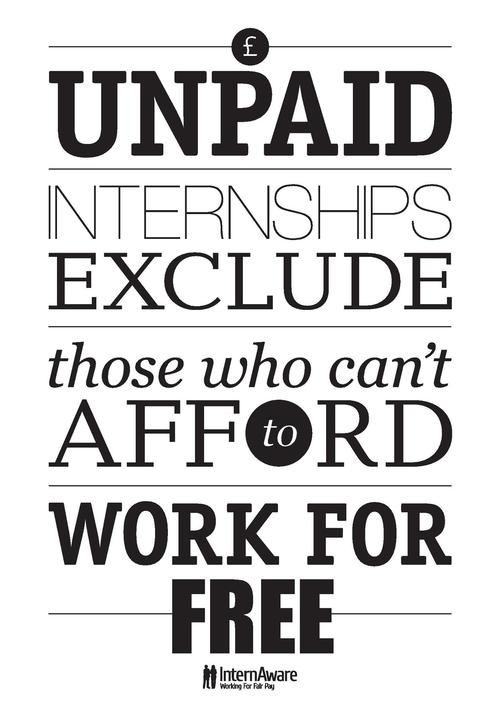Free work: volunteer, spec, equity, and unpaid interns
There’s few things that annoy developers, graphic designers, animators, social media managers and other ‘digital sector’ workers as much as being asked to work for free. Check out the heat a couple of McMaster students got when they asked for developers to join their dating website startup:

The idea of asking for free labour is considered totally preposterous in other industries and jobs. Imagine going into a restaurant and asking for a free meal. Imagine the response you would get?
And yet certain digital workers get bombarded with, ugh, “opportunities” let’s call them, and “good for exposure” deals that essentially amount to doing work for free. That’s obviously going to cause understandable frustration and anger, because often on top of being unreasonable (“build me a Facebook for cats in a weekend and I’ll throw you a case of beer”), the request is phrased in a way that’s also insulting towards the value those workers bring to the table (“we’ll give you 5% of nothing”). And it’s taken as an insult on a deep level too, in that what you do for a living is being insulted.
On the other hand, what’s the first thing any employer considering a new co-op or intern asks for, aside from a diploma/degree? A portfolio. They want proof that the hire can do real work, because they’re paying them to do real work.
Which for developers, typically means a github account with some projects, as advised in another reddit thread (and yes, I pretty much just plan on making all blog posts out of reddit comments from now on…).

If people want to see proof of work before paying one to do work, then by straightforward backward induction, one will need to do work before first being paid to do work.
There’s exceptions to the rule, sure, and ideally the rule wouldn’t exist, but for myself and many others we’ve had to build a portfolio before being paid to do work. It’s clear that, at least for beginners, there’s some legitimate economic incentive to do free work.
Would you pay for a haircut from someone who never cut someone’s hair before? No? Then how could anyone become a barber in the absence of free labour if everyone followed that rule? Cheap or free student barbershops exist for a good reason!
To me the situation is a little less black and white, and a matter of drawing reasonable lines between fair and unfair. So where should the lines be drawn, for both people seeking “free work” and those considering giving “free work”?
Free work seems to generally be mutually beneficial to both parties without any real exploitation when it’s for charities, volunteer or non-profit organizations. For example, people will even post volunteer positions in the job board for small community organizations that couldn’t realistically afford to pay for things: volunteer web admin. If the organization needs to undergo fundraising in order to exist, is someone really being “exploited” if they’re helping out with free labour? For me, the answer is no. For others, perhaps not.

Now what about unpaid internships? Most would say they’re exploitive. I have a serious issue with unpaid internships from the standpoint of equity – those from well-off backgrounds are far better positioned to accept unpaid internships that are highly valuable in terms of education and social connections.
At the same time, try to break into the video game industry without doing an unpaid internship. It’s practically a guild where education must take place in the field, with the employer bearing significant costs for onboarding beginners.
Strong and enforced regulations seem to be appropriate in the case of unpaid internships… Ontario has such regulations, but whether they are effectively enforced or not seems debatable…
Startups and social enterprises are an even greyer area. Startups can offer equity, but how much is 5% of nothing? And social enterprises exist for more than profit, but does the good they can do justify free labour?
If there’s a lot of question marks in this article it’s because I don’t claim to know the answers. I’ve done and continue to do free work for others when I find it to be beneficial to myself, and I’ve continually declined to do free work when I find it to be a net loss. The whole thing has never really bothered me much – if it’s good for me, do it, if it’s not, decline (with politeness of the decline relative to the politeness of the ask), and then move on.
But as I look to do a bunch of new things in the coming years for which I’ll be the one asking for help, my own barometer won’t matter as much as the barometer of the person (or people) I am asking, and I’m finding myself wondering and re-evaluating what’s mutually beneficial and what’s exploitive…